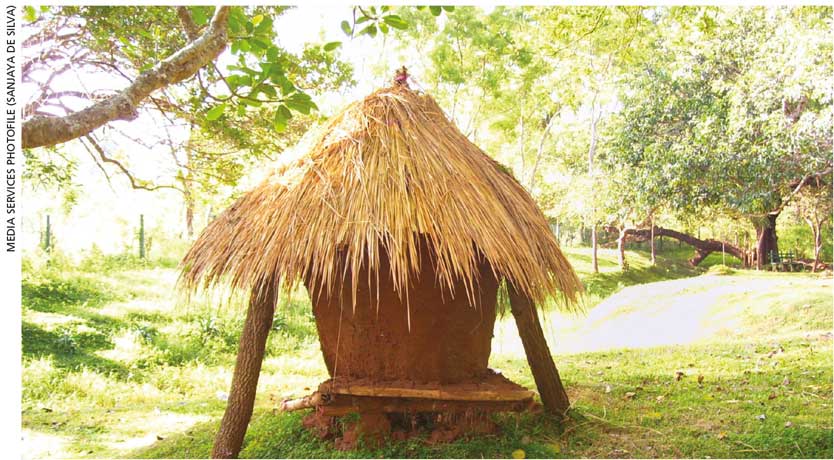AGRITOURISM SECTOR
PIGGYBACKING ON AGRICULTURE
Akila Wijerathna lists the benefits of implementing an agritourism policy

Agritourism is one of the fastest growing sectors in the world today, due to an increased interest in sustainable agricultural practices and the shift to simpler lifestyles. It’s a growing niche in tourism and it isn’t hard to understand why it is flourishing.
What’s more, agritourism also provides a way for people to enjoy nature away from the cities by taking a farm vacation – particularly since many are intrigued by traditional farming practices and the lives of farmers.
Agritourism and ecotourism are closely related. While all farms can offer agritourism, ecotourism seems to require promotion by tour operators. Agritourism is possible when a farmer in an area offers tours of his or her agricultural farm, so that tourists and city folk can see and understand how local crops are grown, harvested and processed.
This also includes any produce that visitors wouldn’t find in their home city or country. Farmers often provide homestay opportunities and education as well.
Tourists observe and participate in traditional agricultural practices. This type of tourism can take many forms such as farm stays with accommodation and meals; culinary tourism with food or wine experiences; agriculture heritage tourism that includes learning about the environment and sustainable farming practices; and information centres where visitors can learn about the place’s history, organisation, production methods, and health and wellness tourism.
Typical attractions at farm destinations include tours, picking your produce, educational demonstrations, shops, picnic areas and homestays. Traditional agritourism is about vacationers staying in farms where farmers offer their property’s natural tourism enabling resources to visitors.
As a result, traditional agritourism can bring in an additional but modest increase in income for the farmers. And the sector can use wildlife, water resources, historical elements and farm animals as a pull factor to attract tourists.
Moreover, agritourism also provides noneconomic benefits such as acquiring new farm customers, providing knowledge and raising the quality of life of farmers. It can also maintain the sustainability of natural resources, and revitalise local wisdom and pride.
Agritourism helps reposition the agriculture industry so it can maximise the integration of indigenous food, culture, wellness and environment into a sustainable tourist experience.
Policies relating to the promotion of agritourism must cover the increase of knowledge and understanding of environmental conservation, and improve the quality of life of farmers through added values of community agricultural activities, as well as natural resource management.
Agricultural resource management is targeted mostly at the conservation of biodiversity, which uses agritourism as a means of managing agricultural resources. Income from agritourism should be used for agricultural resource conservation, the emergence of livelihood alternatives and an increase in income among community members.
Agritourism generally provides income, employment, utilisation of existing facilities, agricultural activity areas, nature conservation, recreation, and education in urban and rural areas. This psychosocial function covers gaining new skills, meeting people, and reviving rural traditions and education.
Economic functions cover an extension of accommodation facilities, additional workplaces, increased sources of income, money for communes, overcoming economic recessions and promoting socioeconomic development.
The spatial and environmental functions cover enhanced environmental and natural protection, development of local infrastructure, higher house values, better resource utilisation and stemming mass migration from rural areas.
According to the World Tourism Organization (UNWTO), agritourism “involves accommodation being offered in the farmhouse or separate guesthouse, providing meals and organising guests’ activities in the observation and participation of farming operations.”
Globally important agricultural heritage systems protect our ecosystems, and help generate jobs and incomes for rural communities through agritourism.
However, there are still some barriers that need to be addressed before agritourism goes mainstream.
One major limitation is that many people don’t know what agritourism is or how it will benefit their lives. Another significant concern with regard to this emerging sector is how much it will impact agricultural production.
To bridge the urban-rural divide in any country, agritourism is a way forward for tourism industry players to protect economic livelihoods while preserving rural lifestyles.
As with all forms of tourism, careful management is required to prevent potential negative impacts on the environment, agricultural resources, biodiversity, and the lives and cultures of the people in these areas. And of course, sustainability is the key.



